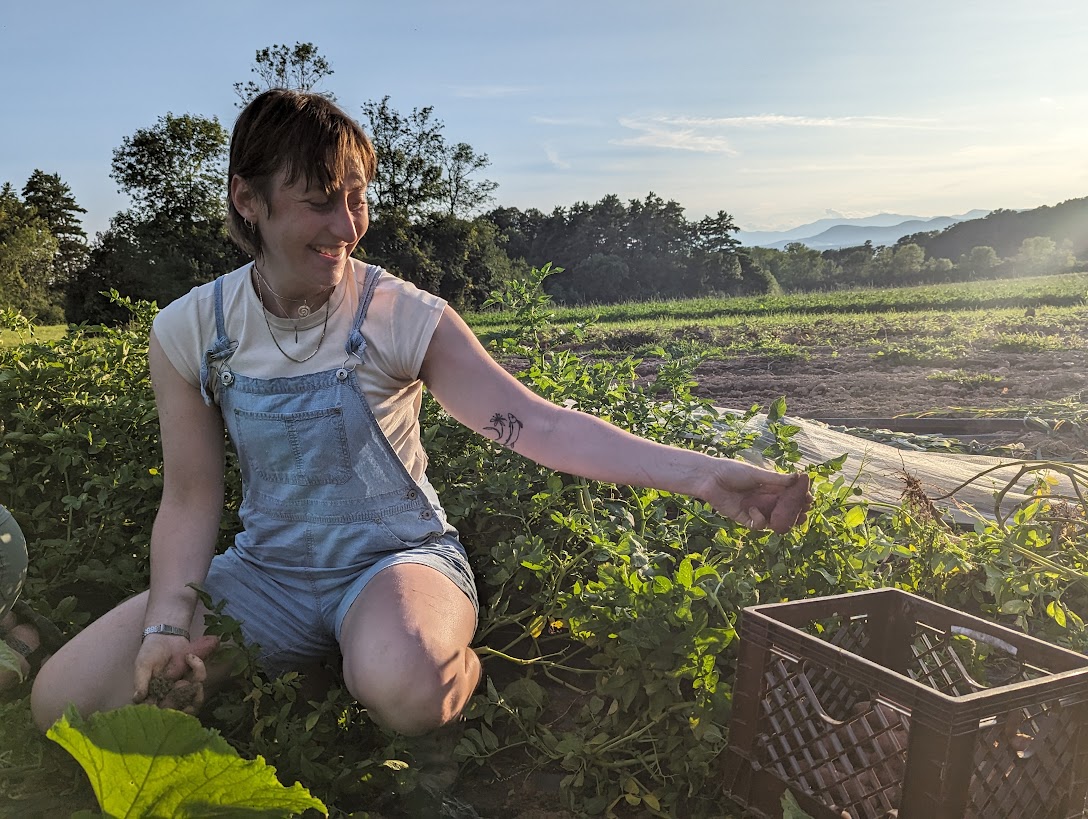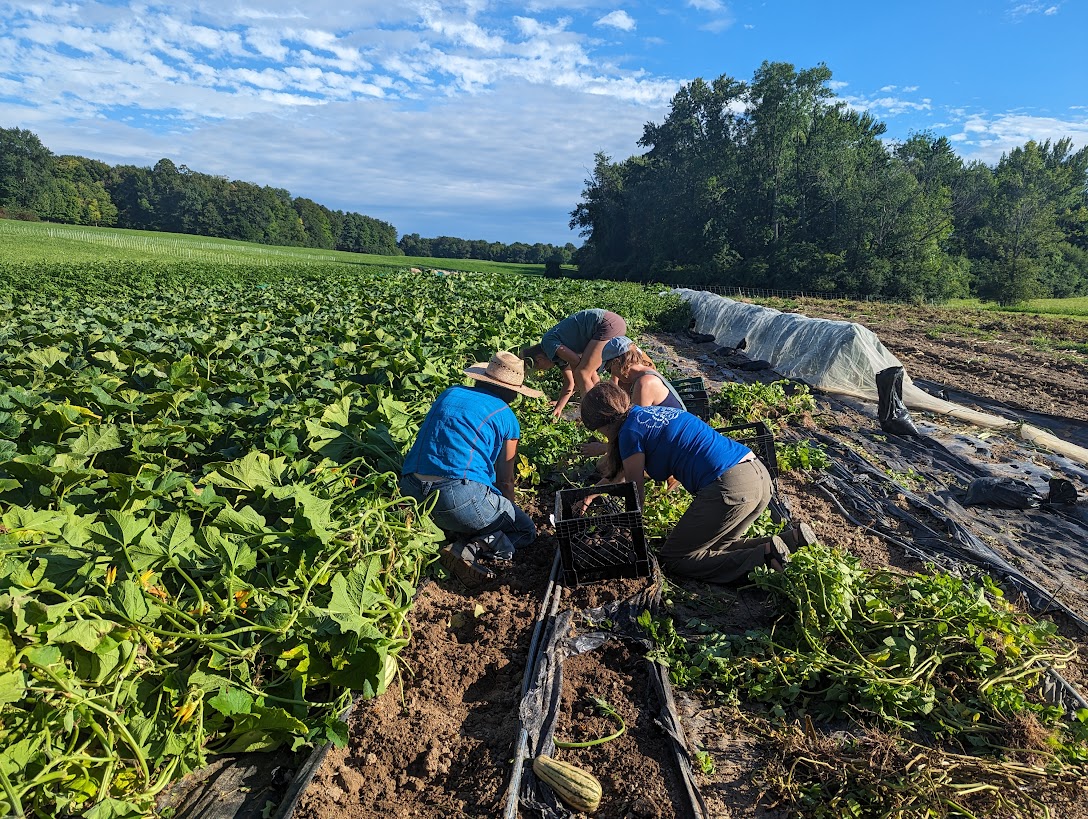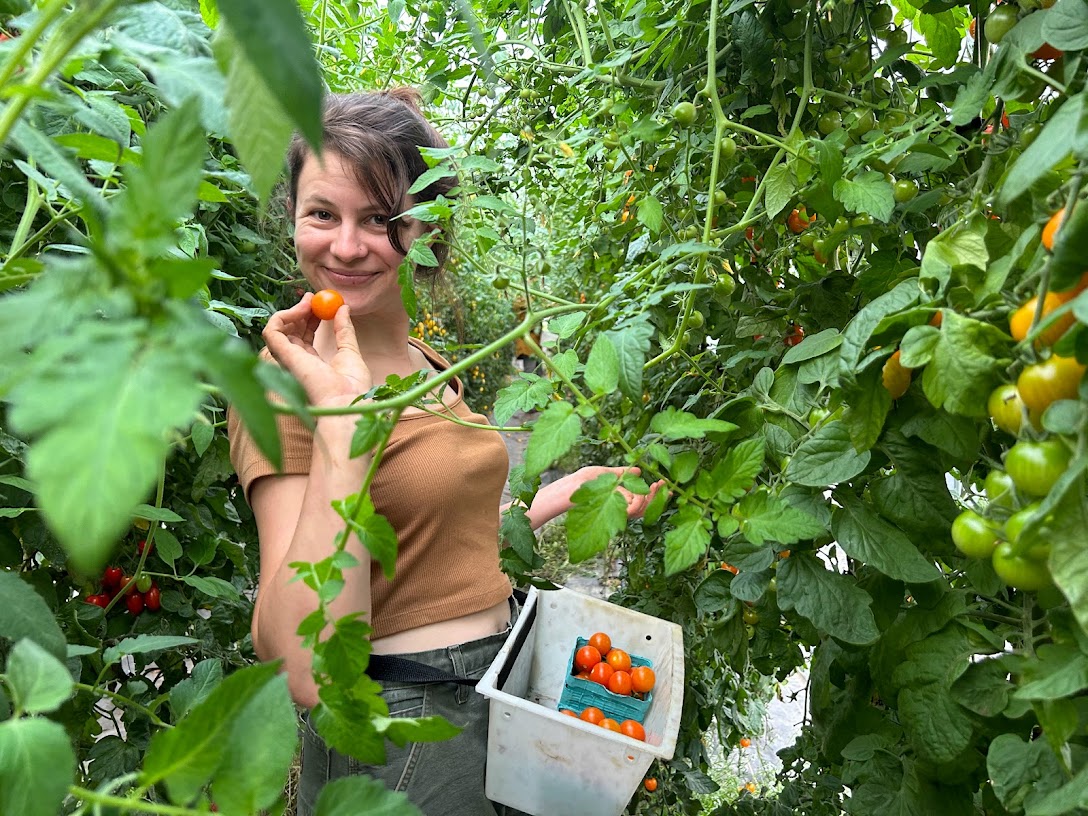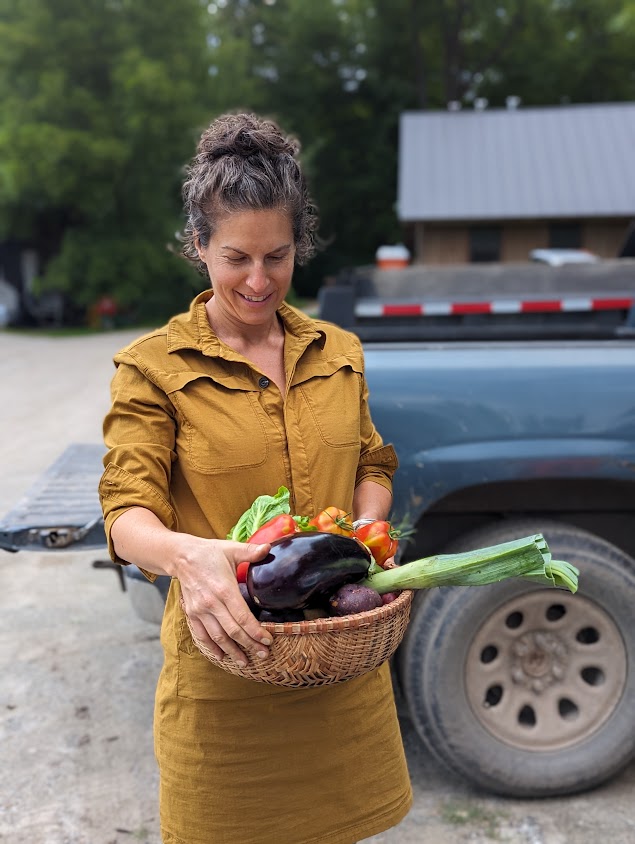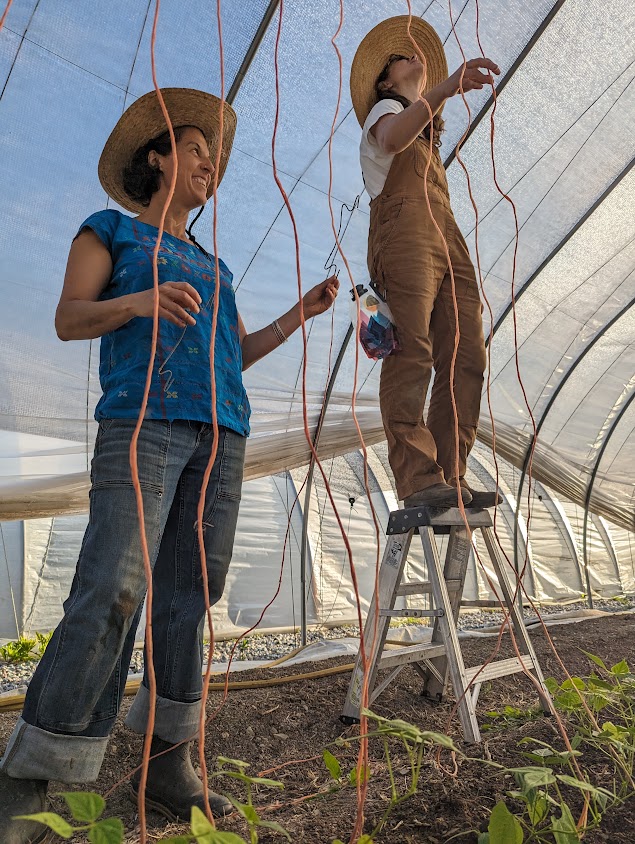Members of our Seedsong Collective Garden lost their entire garden during the July flood at the Intervale in Burlington. Amidst the sorrow and uncertainty of next steps in the flood recovery process, we received a generous invitation from a former graduate and board member. Casey participated in VGN’s Thriving Gardens Course in 2017 and later served a term on VGN’s Board of Directors. She is currently the Director of Human Resources at Shelburne Farms and we are eternally grateful for the connection she made between VGN and Shelburne Farms.
Soon after the flood, Casey reached out to VGN offering Seedsong members the opportunity to work at Shelburne Farms’ Market Garden in much the same spirit as our collective garden program runs – members engage in garden work for 2 hours in exchange for fresh garden harvests. With excited agreement from Seedsong members, a crew of 5-12 gardeners have shown up every Tuesday evening to meet Josh, the Market Garden Manager, who is ready with a list of tasks to complete and harvestables to take home. The opportunity to work in a gorgeous and productive garden, next to fellow garden friends, has meant the world to us.
Testimonies from Seedsongers say it best:
“I’ve been a gardener for over 10 years, and losing my gardens to floods this summer left a tremendous void in my life. I felt like I lost a sense of purpose. I’m so grateful for the opportunity to help at Shelburne Farms Market Garden, which has given me back a part of my life that I’ve been missing. And it’s extra special that this gardening experience is in such a magical setting.” – Carrie
“After losing our garden as it was literally tilting toward burst, Shelburne Farm and Josh’s sharing of their market garden has meant my arms up to the elbows in rich purple fingerling dirt, the snap of a sungold, the tussle with crabgrass, the arc of indescribable Vermont sky above as I move and work in the growing of things. It’s meant I can again cook garden fresh. And yesterday, as I looked here and there to see my Seedsong gardeners at work in the raspberries, under the apple tree, among the chard and kale, it meant I was back in my beloved community. Doing what we all so love. We can’t replace what we lose, but sometimes we’re gifted compensatory solace. Thank you so much for this restoration. – Amy
